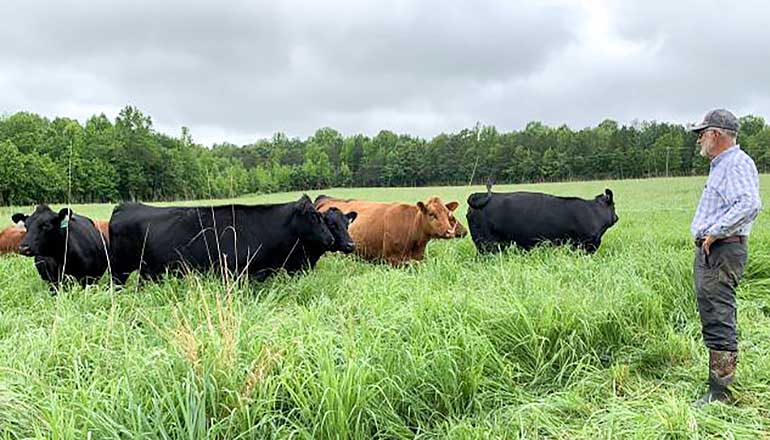University of Missouri Extension is recruiting farmers for a project aimed at improving the productivity of forage-based operations in areas dominated by tall fescue grass.
Participating operations will collaborate with extension specialists to implement grassland management practices known to enhance productivity and provide environmental benefits, according to Harley Naumann, MU Extension state specialist in forage and grazing management. Operations will be compensated for their participation.
“This grant represents an investment in Missouri farmers and ranchers interested in enhancing the productivity of their grazing lands using climate-smart production practices,” Naumann said. “Implementing climate-smart agriculture practices in Missouri is not a one-size-fits-all proposition. I look forward to assisting Missouri farmers and ranchers with implementing climate-smart practices in forage livestock systems that are functionally adaptable to individual production goals and objectives.”
The project is an initiative of the Grasslands Partnership, which is organized by extension services in nine states within the “tall fescue belt.” Funding is provided by the USDA Natural Resources Conservation Service’s Climate Smart Commodities program.
Practices farms could implement under the program include:
- Establishing native warm-season grass pastures
- Improving grazing management
- Interseeding legumes as alternative nitrogen sources
- Establishing perennial field buffers
- Creating silvopasture by adding trees to existing pasture
- Amending soil with biochar or gypsum
In addition to incentive payments, expected benefits include forage drought resilience, improved soil and water quality, and enhanced wildlife habitat, said Naumann. Developing carbon and environmental benefits can lead to a carbon market that may offer producers an alternative income source.
Participating producers will work with extension specialists to determine which practices best fit the farm. Ideally, each farm will use three or more practices, with each practice implemented on a different pasture. A separate pasture must be maintained with typical management practices so the Grasslands Partnership can compare outcomes. Participants are also expected to keep records on the implementation of the practices; allow access to their farms for pasture assessment, soil sampling, and other monitoring; and host two field days during the five-year course of the project.
For more information, contact project coordinator Ellen Herring at [email protected].
(Photo courtesy of the Grasslands Partnership)


